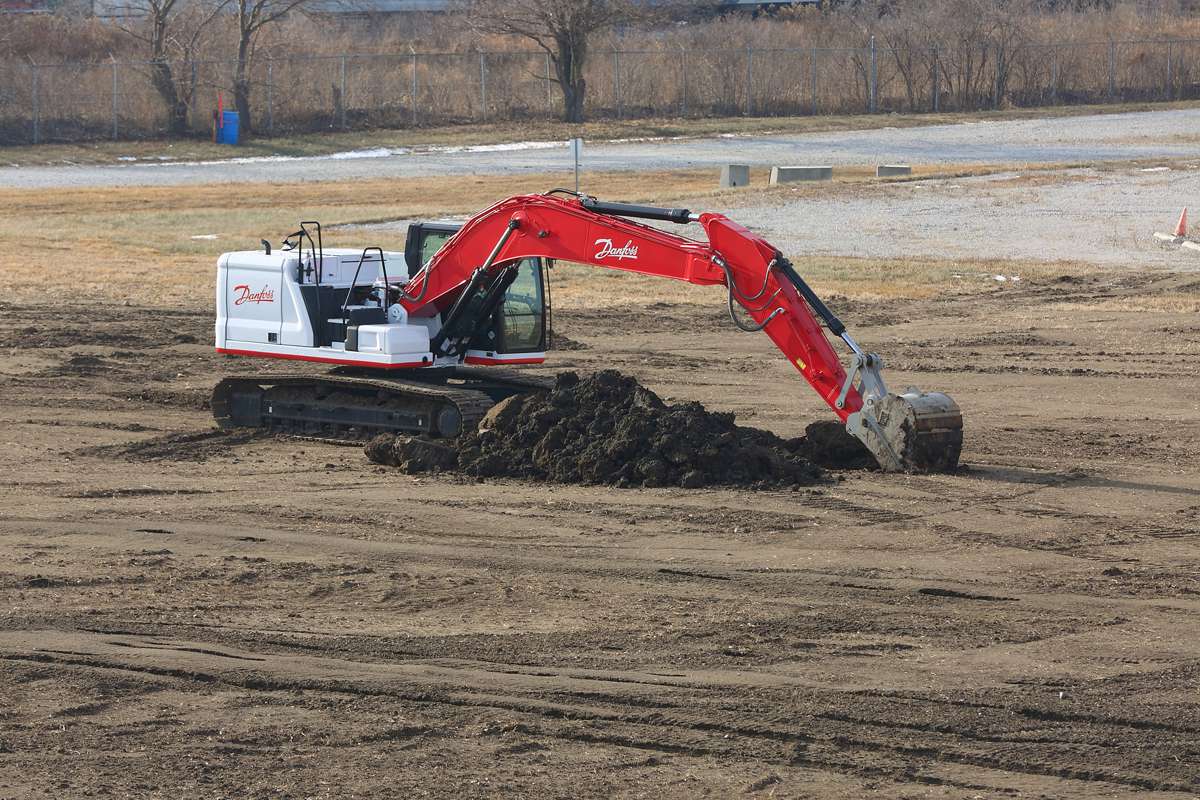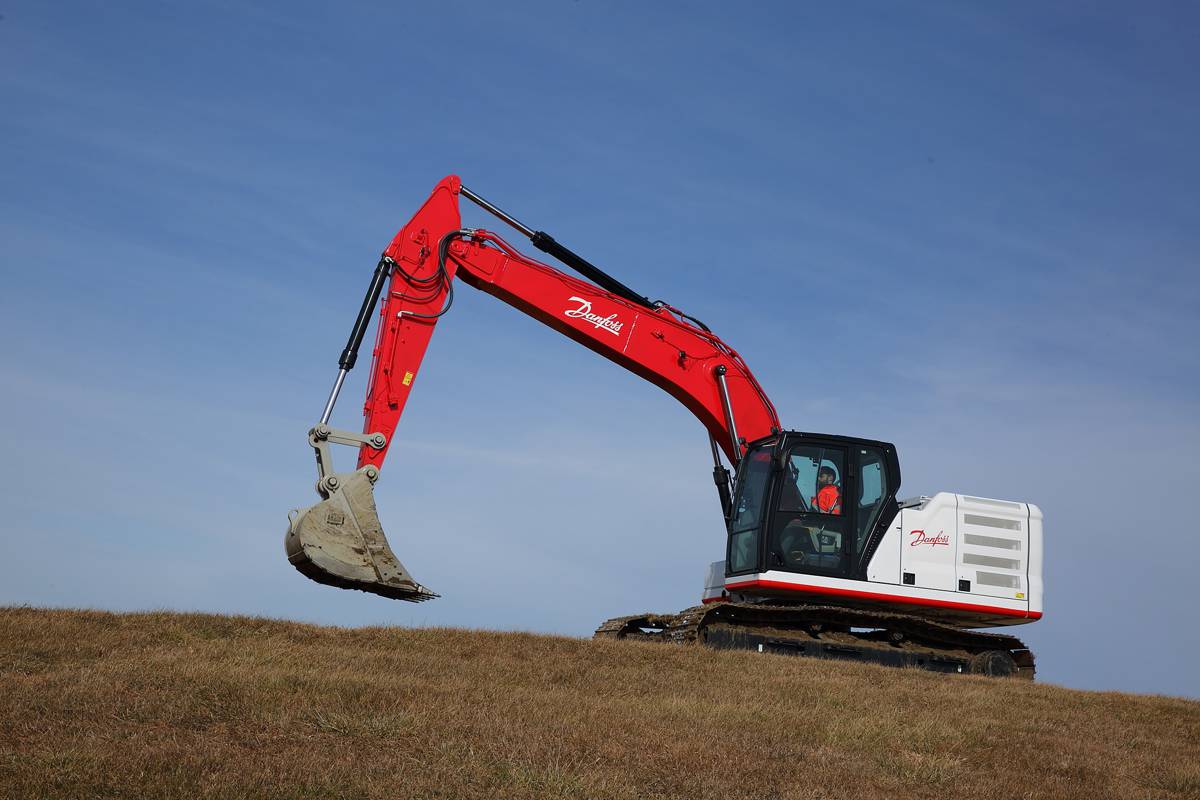Danfoss accelerates Excavator Decarbonisation with £4.9m grant
Danfoss Scotland, part of global hydraulics and electric powertrain systems supplier Danfoss Power Solutions, has received a grant worth £4,941,809 (approximately $6.1 million) from the U.K. Government’s Department for Energy Security & Net Zero through the Red Diesel Replacement Phase 2 Competition.
The programme provides funding for projects developing low-carbon alternatives to red diesel for the construction, mining and quarrying sectors. Danfoss will use the funds to validate its Dextreme Max system in a 30-ton electric excavator, which it expects will reduce energy consumption by 50%.
“Electrification offers a promising route to decarbonisation, but the immense power consumption of excavators means that expensive batteries and charging infrastructure are required. This cost is a major barrier to wider adoption of electric machines,” said Leif Bruhn, head of Digital Displacement, Danfoss Power Solutions. “Excavators account for 50% of emissions from construction machinery, and hydraulic systems within excavators waste as much as 70% of the useful power delivered by the engine. By dramatically improving excavator energy efficiency, we can reduce the battery size and charging energy required to do the same amount of work. This will bring down costs, thus accelerating the transition to zero-carbon energy sources. The solution to a greener future in construction is efficiency. If we can prove it’s possible in excavators, we can conceivably accelerate the electrification of all large construction machinery.”

Danfoss’ Dextreme Max system is designed to cut excavator energy consumption by up to 50% by reducing energy losses and recovering energy that would otherwise be wasted. An integral component of the Dextreme Max system is the DDP1x0D, a Digital Displacement hydraulic pump that enables energy recovery from excavator motions such as slew deceleration and boom lowering. The energy recovery feature of the pump was developed as part of the Red Diesel Replacement Phase 1 Competition and proven at expected efficiency levels in a test rig. In Phase 2, Danfoss will integrate the DDP1x0D pump, an Editron electric drive, and other components required for the new system architecture into a battery-electric excavator.
Danfoss plans to convert a 30-ton electric excavator at its Application Development Centre in Nordborg, Denmark, beginning in January 2024. The excavator will then be shipped to and operated at a quarry in the U.K., with project completion planned for February 2025.
The project’s goals are to demonstrate that by improving excavator efficiency, the Dextreme Max system can:
- Reduce battery capacity requirement from 3 packs to 2 packs
- Reduce electrical load on charging infrastructure
- Lower overall capital and operating expenses compared to baseline electric machine
- Lower total cost of ownership compared to diesel machine
- Offer the same or better productivity and run time than baseline machines

“This project is an incredible opportunity to prove the efficacy of a new system solution and architecture, demonstrating that large-scale innovation is still possible in hydraulics. We’re grateful to the U.K. Government for its support,” said Jeff Herrin, senior vice president of Research, Development, and Engineering at Danfoss Power Solutions. “In addition to the project’s stated goals, we intend to highlight how our application know-how and sustainable innovation is de-risking the adoption of new technology and supporting our customers in their decarbonisation journeys. Transitioning to low- and zero-emission machinery isn’t just good for the environment; it can support the construction industry’s drive for lower costs and higher productivity.”
The Red Diesel Replacement Competition is part of the £1 billion Net Zero Innovation Portfolio, funded by the Department for Energy Security & Net Zero. The fund seeks to accelerate the commercialisation of low-carbon technologies to help enable the U.K. to end its contribution to climate change. The Red Diesel Replacement Competition is divided into two phases.
The first phase was for the development of component technologies — for which Danfoss received a £407,112 grant — and the second phase is for system integration and demonstration of low-carbon solutions. The £4.94 million grant Danfoss received as part of Phase 2 represents 65% of the project cost. Danfoss will fund the remaining portion.




























